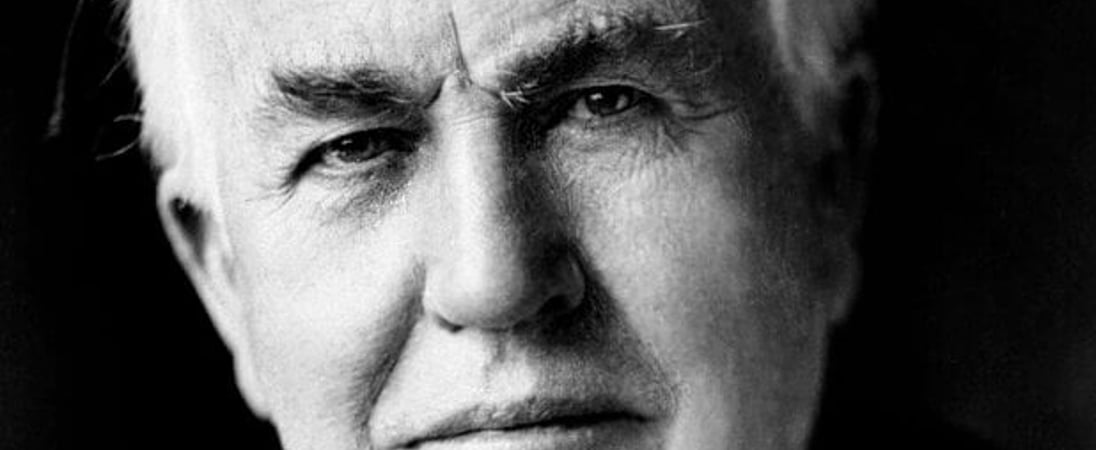
Thomas Edison's birthday
Thomas Edison, born on February 11, 1847, changed the world with his inventions. Known as a master inventor, he gave us the electric light bulb, motion picture camera, and the phonograph, to name a few.
His life was a journey of creativity, turning ideas into inventions that still impact our lives today. Edison’s hard work and countless experiments made him a symbol of American innovation.
His story inspires many, showing how persistence and curiosity can lead to extraordinary achievements.
Thomas Edison’s Early Years
Thomas Edison’s childhood was full of curiosity and learning. Born in Ohio, he grew up in Michigan, where his love for experiments began.
Young Edison was always asking questions, eager to understand how things worked. He faced challenges in school, often finding traditional learning difficult. But this didn’t stop him.
His mother, a former teacher, took over his education. She encouraged his thirst for knowledge, fostering his natural talents.
At home, Edison turned a corner of the basement into his laboratory. He spent hours there, experimenting with whatever he could find. His first experiment? Trying to hatch goose eggs by sitting on them! This early sign of his inventive spirit was just the beginning.
Edison also loved reading, devouring every book he could read. His favorites were science and invention books, which fueled his passion.
Despite having little formal education, Edison was a quick learner. He taught himself a wide range of subjects, from science to business.
By the time he was a teenager, he had already started his path as an inventor. His early experiences, full of trial and error, laid the foundation for his future successes. Edison’s childhood shows us that anyone can start to shape their destiny with curiosity and determination.
Thomas Edison: Lighting Up the World with Innovation
Thomas Edison’s journey to success began in earnest in his early twenties. His first major invention was an improved stock ticker, the Universal Stock Printer, which brought him good money.
This success fueled his ambitions, leading him to set up his invention factory in Menlo Park, New Jersey. It was here that Edison truly began to shine.
In 1877, he invented the phonograph, a device that could record and play back sound. People were stunned; nothing like it had ever been seen before. But Edison didn’t stop there.
His greatest achievement was yet to come. In 1879, he introduced the electric light bulb. This wasn’t the first light bulb ever made, but it was the first practical one, lasting longer and being more reliable than any before.
Edison’s light bulb changed everything. It led to the first electrical power stations, transforming how people lived and worked. Streets became brighter, homes more welcoming, and businesses could operate longer. Edison’s work laid the foundation for the modern electric world.
But his genius didn’t stop with the light bulb. He also developed motion picture cameras and projectors, bringing the magic of movies to the public. His contributions in these fields were groundbreaking, setting the stage for the entertainment industry we know today.
Edison held over 1,000 patents in his lifetime, a testament to his relentless inventiveness. His success came not just from his brilliant mind but also from his work ethic. He believed in trying and failing until he found a solution, famously saying, “I have not failed. I’ve just found 1,000 ways that won’t work.”
Interesting Facts About Thomas Edison
Early Entrepreneur: As a teenager, Edison became an entrepreneur. He sold newspapers, snacks, and candy on trains. He even printed his newspaper aboard the train.
Hearing Loss: Edison experienced hearing loss from a young age. This didn’t hinder him; some say it helped him concentrate on his work.
Telegraph Operator: Before becoming an inventor, Edison worked as a telegraph operator, which sparked his interest in electrical communication.
Improving the Telegraph: His early inventions were focused on improving telegraphic communication, including a system that sent multiple messages on the same wire.
The Electric Pen: Edison invented the electric pen in 1876, a precursor to the mimeograph and the modern tattoo gun.
First Industrial Research Lab: His facility in Menlo Park is often considered the first industrial research laboratory.
Film Studio Innovator: Edison built one of the first film studios, the Black Maria, where he produced some of the earliest movies.
Friendship with Henry Ford: Edison was good friends with automobile pioneer Henry Ford, and they often shared ideas and inventions.
Also on this date...
National Latte Day
Velvety, creamy, and oh so delicious, lattes are the perfect pick-me-up with a shot of espresso and steamed milk.
National Get Out Your Guitar Day
Dust off the old six-string and relive the glory days. Reconnect with the magic of creating music and let your fingers do the talking.




